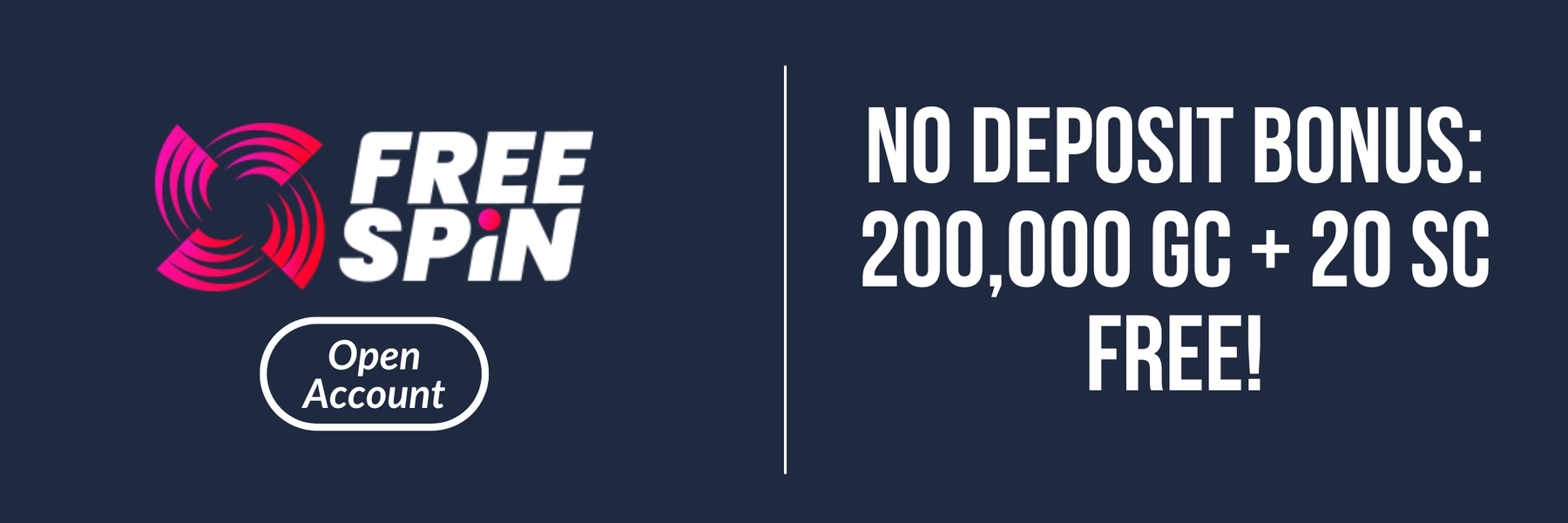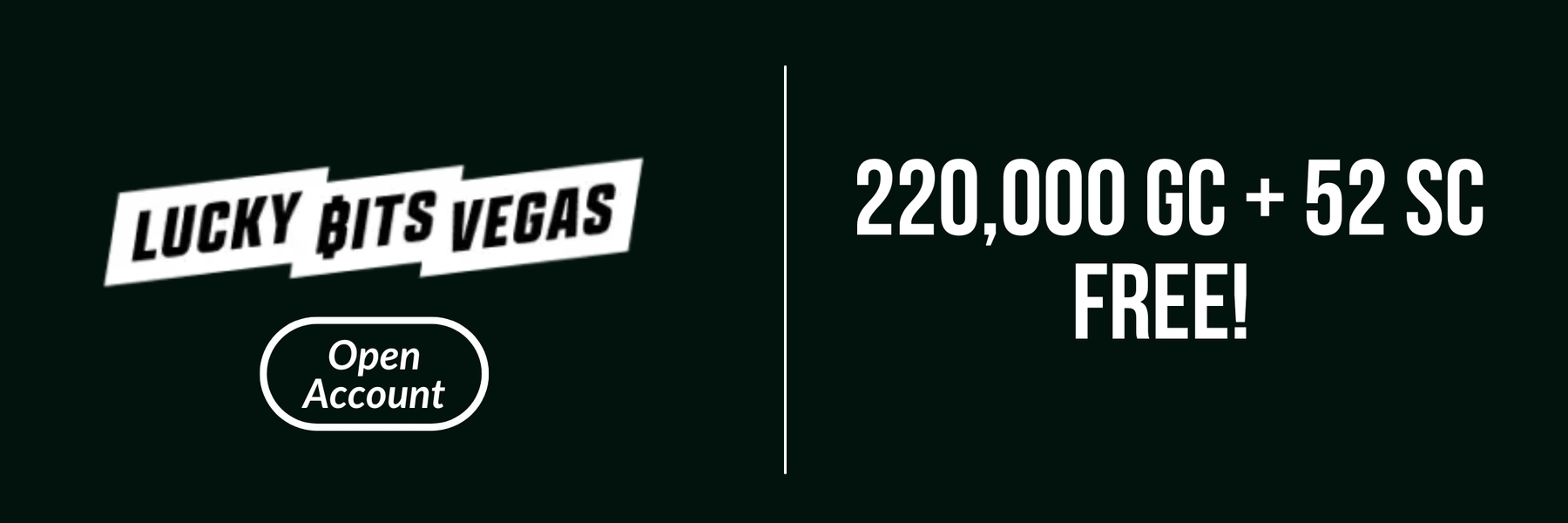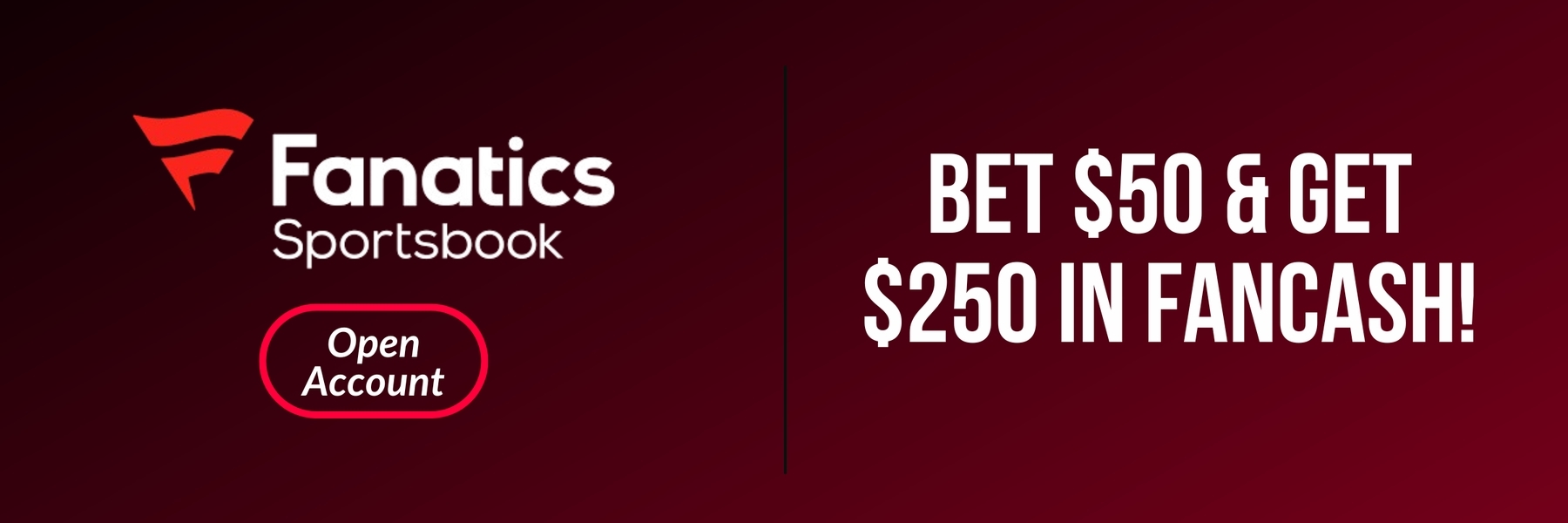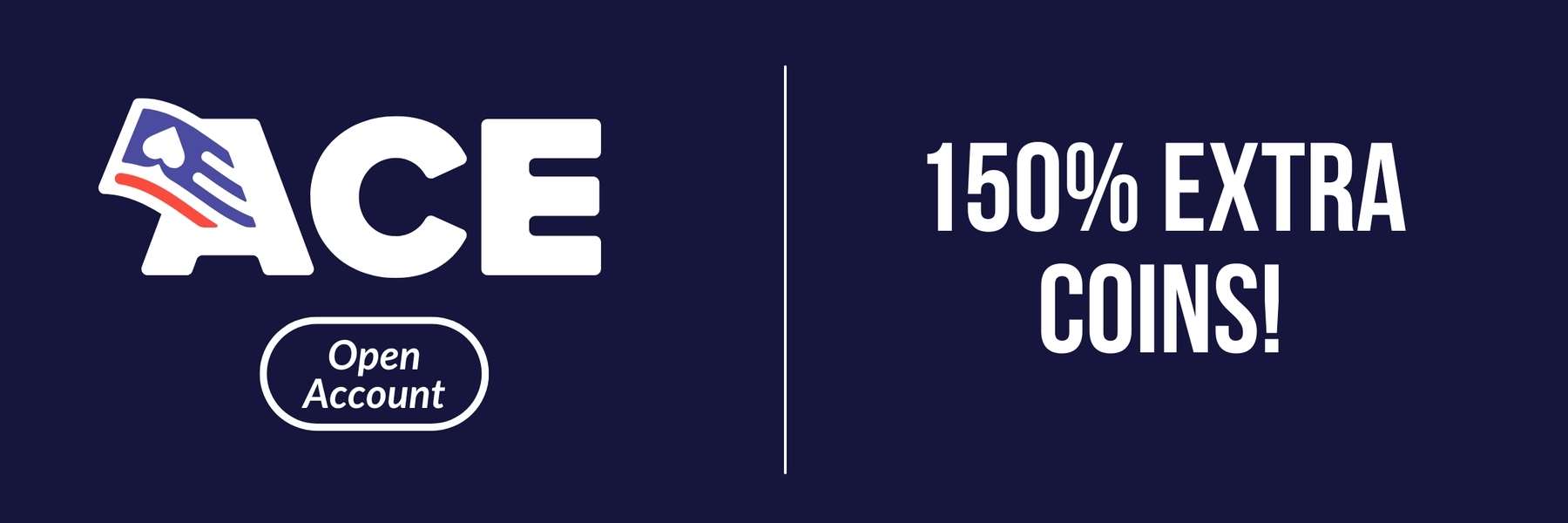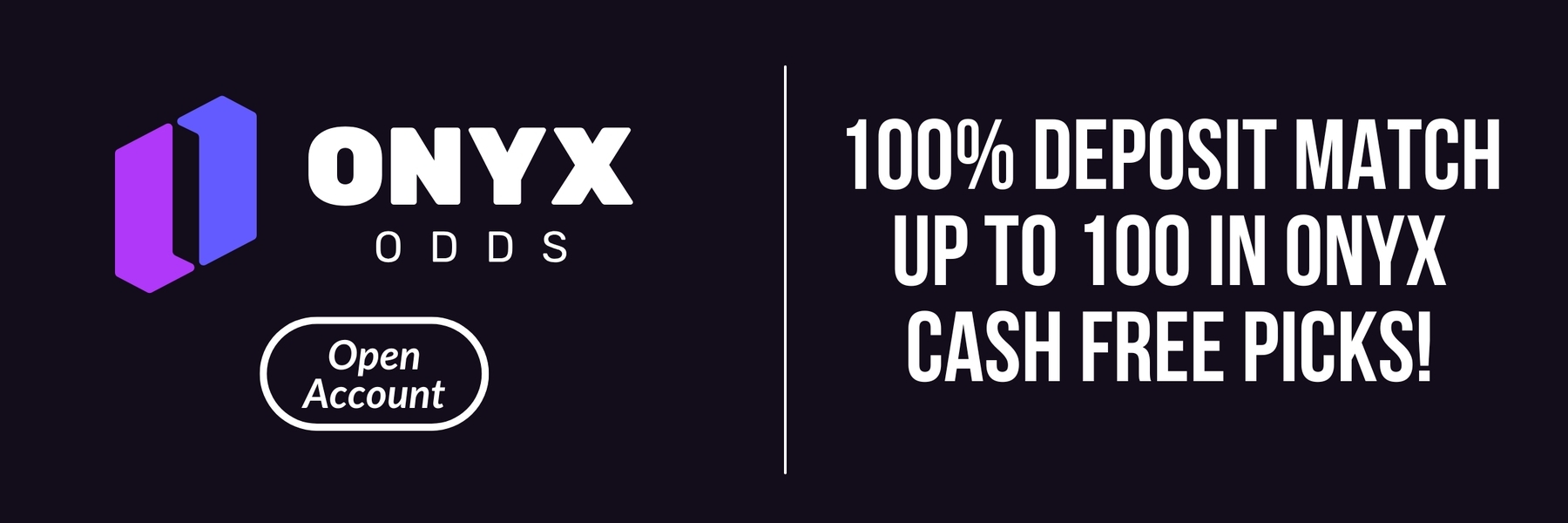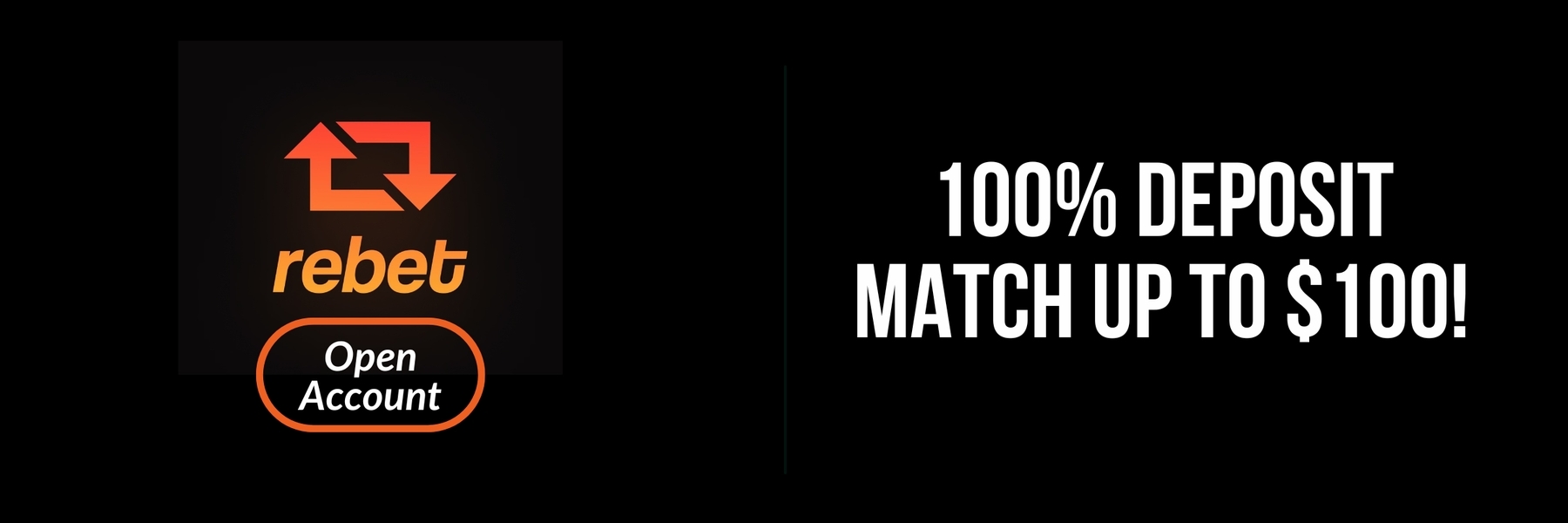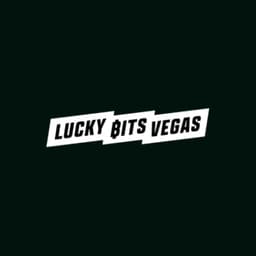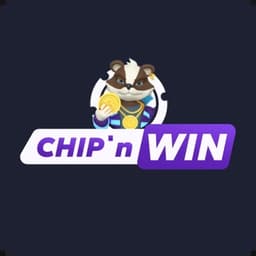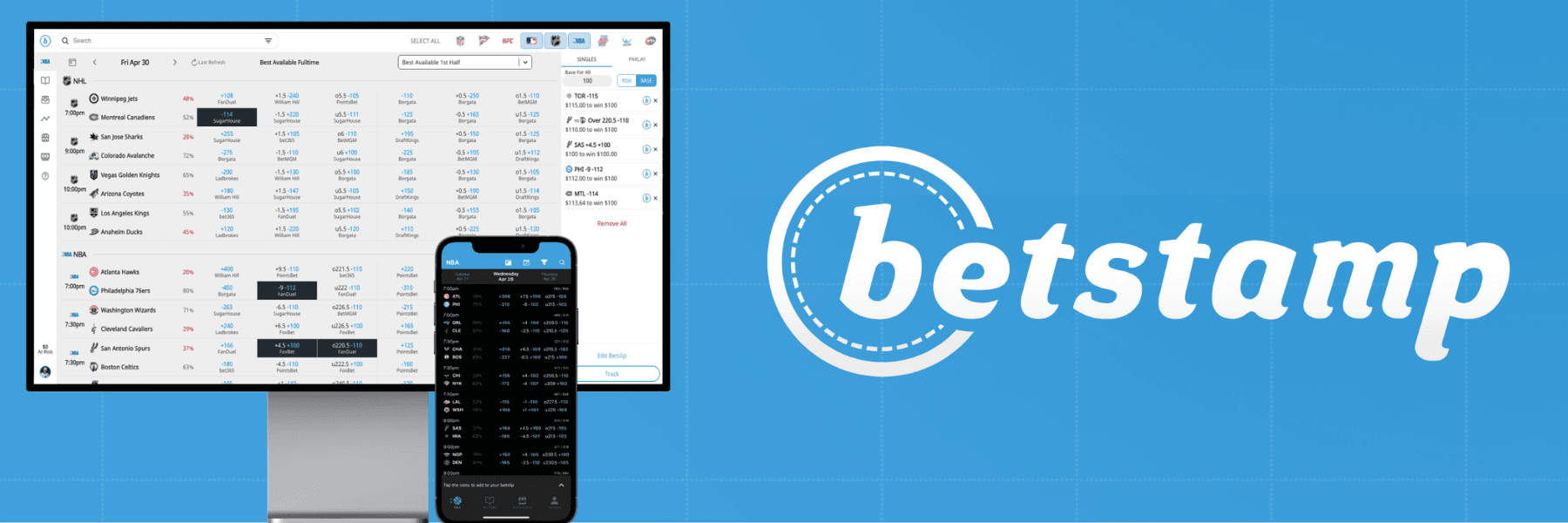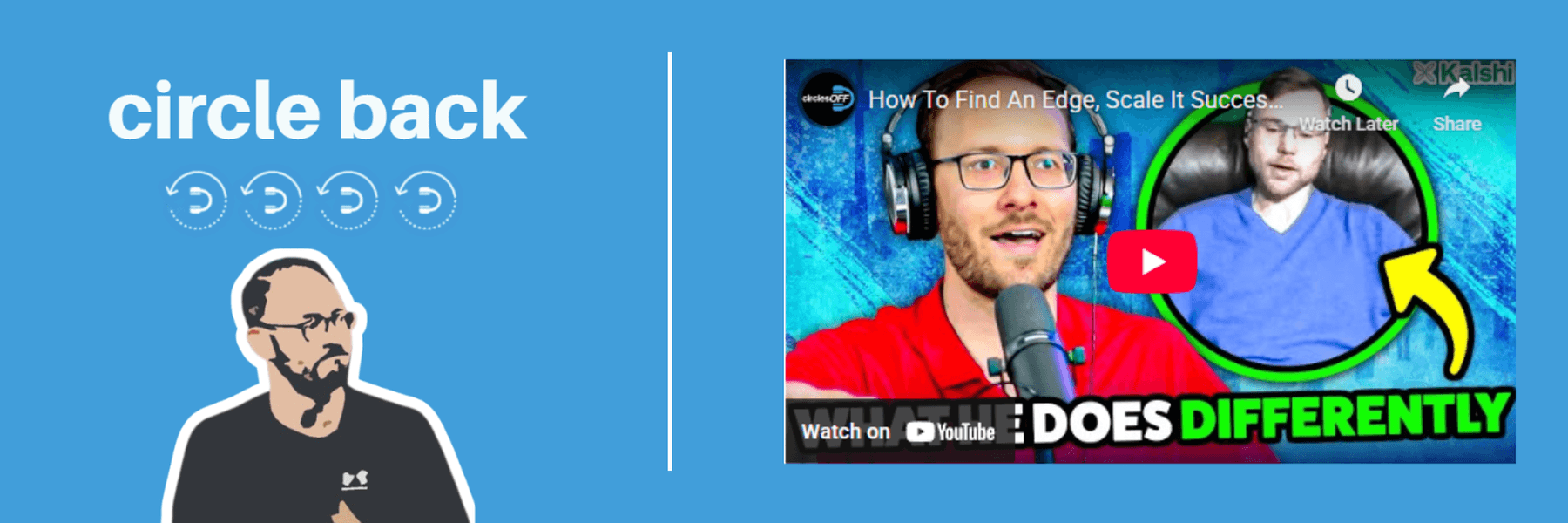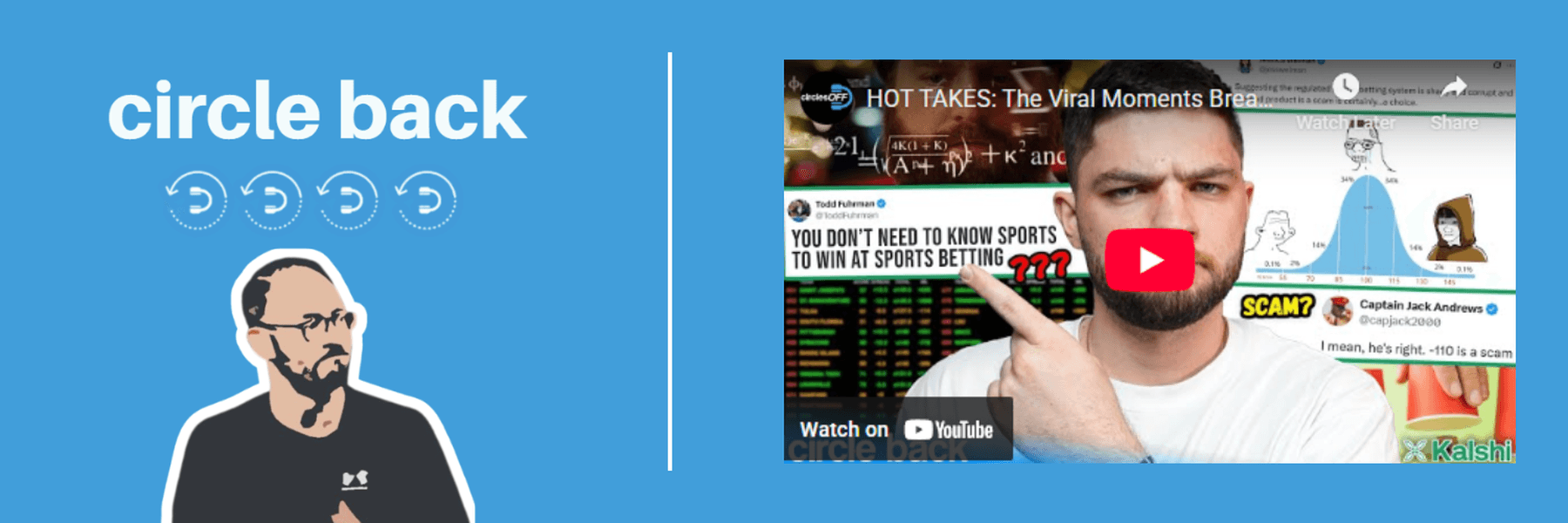00:00 - Dean Sisun (Guest)
Spoiler alert you gave me this question ahead of time. Yes, and I don't know if I have the right answer for the minus EV move yet, but I will. I'll give you my hot take, I suppose. Come on, let's go. You think I'm going to come on here and put one of the Aussies in the elite tier?
00:18 - Rob Pizzola (Host)
I'd vote for Rob of 25,000. I wouldn't vote for you. I could basically just cheat and get the same bets that they're getting. It's weird because you can also pay your bills at the same place where you bet. I mean, you're a short guy, what?
00:35 - Dean Sisun (Guest)
This guy talks a lot of trash. He's talked a lot of trash about me, Rob, a lot of people in the community, but he's refusing to show his face.
00:42 - Rob Pizzola (Host)
Coding yourself as a pretty good NFL gambler, I thought you were an idiot. Say testing, testing, I'm a cuck. One, two, three, four.
00:49 - Dean Sisun (Guest)
Aussies going head-to-head with the Aussies. That's what I grew up for and I said get him Kirk.
00:54 - Rob Pizzola (Host)
And they call me a mean-spirited name. I don't hang out with them.
01:06 - Jacob Gramegna (Announcement)
The Toronto Maple Leafs at 14-1 are staring me dead in the face. I'm already getting uh, you know, a lot of uh, a lot of a lot of early. This could be the best circles off episode we've ever.
01:11 - Rob Pizzola (Host)
That's ever been done. Welcome to circles off episode number 183 right here, part of the hammer betting network and presented by pinnacle sportsbook. I am rob pazola, no johnny next to me today. You face face across from me Usually. Producer Zach Phillips announced on last week's episode that it was going to be the last one for Zach on Circles Off. He's still with us at the Hammer here, but we've shuffled things around a little bit. So, as you're known, on the watch-alongs, the giant Jacob Grimenia is my producer now. Happy to be here. Are you nervous?
01:44 - Jacob Gramegna (Announcement)
for our first episode. I am only nervous because we didn't have the utmost luxury of time to prepare myself to jump in here. So me and Zach, if we do a few things differently, I have to work through that for just this episode and also Zach's very well liked. So I have some very large shoes to fill. People were upset that he was leaving the show.
02:09 - Rob Pizzola (Host)
He is really well-liked Like. His approval rating is through the roof. If you were taking over for producer Jason Jason Cooper, thank God, yeah, exactly People would be. You know they'd be throwing a parade at this point, like parties would be happening across north america this one.
02:25 - Jacob Gramegna (Announcement)
They're upset like, oh, who the hell is this guy? Yeah, who is this guy?
02:29 - Rob Pizzola (Host)
uh, jacob's a great guy. He was, um, you know, he's been with us since the beginning, um, early bet stamp days plus the hammer. I have the utmost faith in jacob. I don't think you'll see anything change on your end from a production point of view. Uh, I do want to just quickly touch on. I guess I'd call it the elephant in the room. I don't know if it is.
02:47
Obviously, last week was a deeply personal episode that I did. I had been planning to do that for a long period of time and then it just kind of hit me that that was going to be the week and I just turned the camera on and spoke, shared my thoughts, appreciate all the feedback I got. I got hundreds of pieces of feedback Twitter DMs mostly, but people who know me have my phone number reached out several phone conversations, twitter, youtube, comments. I appreciate actually all of the feedback, whether positive or negative. I know it was mostly received well. A lot of people have gone through similar patterns in their life and they really resonated with the episode. Others they just thought I was complaining or whatever, and that's totally fine. Honestly, I just be real as much as I can with the audience. I share real experiences. I think that's important. I don't think that'll be the last episode I ever do of that kind, but I don't plan on doing them weekly or anything like that either. So we're going to get back into the regular flow of Circles Off going forwards. But I did want to share with everyone that I truly appreciate every piece of feedback. I'm way behind on responding to people, but I've been taking the time to write personal messages and reading everything that people have written me. Some people have written me like literally stories with their own personal experiences, and I'm an emotional person. I'll stop there. I'm just really happy at all the feedback that was received last week. It means a lot to me. It means a lot to me.
04:31
Into this week's episode, we're going to talk about the exchange model a little bit. We've done that before with Henry from Novig earlier on. If you've been following this channel for a long period of time, you would have remembered G-Stack, george, george Silfitis, who is still with the Hammer but not on camera right now for reasons I won't get into, but he interviewed Alex Kane of Sportrade previously. So we've had some exchange model conversation on this program before Going to go down that path today with a few wrinkles as well, but I do want to remind you before we do.
05:07
Pinnacle is the proud sponsor here of Circles Off. I'm very happy to promote Pinnacle because my life Pinnacle's basically an extension of my life. I'm a person who likes to price shop, likes to save wherever I can. I like value and Pinnacle is the brand in market where you are going to get the most value. They're not going to limit you as a bettor. If you're a line shopping, you're almost always going to find Pinnacle has one of the best prices on any side of the game, whether you're betting the NFL, college football, college basketball, nba, nhl, anything that's going on right now. I would highly recommend that if you can get a Pinnacle account, you get one. They've been in business for the past 25 years for a reason. Bet smart, bet Pinnacle, check out Pinnaclecom slash hammer. To sign up, you must be 19 plus, licensed in Ontario, not available in the US. And, as always, please play responsibly.
06:07
Joining us today is Dean Sisson. He's the CEO and co-founder of ProfitBet Exchange. Dean has been at the forefront of revolutionizing the way that bettors interact, creating a peer-to-peer exchange that offers better value, transparency and control for its users. Under his leadership, profit has grown into one of the most exciting and innovative names in the space, challenging the traditional sportsbook model. Dean, welcome to the show. Great to have you here on Circles Off.
06:34 - Dean Sisun (Guest)
Thanks for having me, Rob. I'm excited to chat.
06:36 - Rob Pizzola (Host)
Yeah, no problem at all. Before we get into it and dive into some deeper topics, if you could just give us a bit of your personal background and what initially drew you to the sports betting industry?
06:48 - Dean Sisun (Guest)
Sure, personal background wise, I actually I'll back up even more. What initially drew me into the sports betting space was actually my dad. I was in high school and he was in an office pick'em pool. And he was in an office pick'em pool. This is not to say that I was any bit sharp at 16 years old. But I entered the pool for the first week and I won. We won the pot. I think it was like $20 a person. My dad and I split it. I think we each made like $400. So we did the pool again and I won again and I was like holy cow, this is phenomenal, this is so easy and I had a lot to learn. And the guys in the pool said, if, if you know, if this kid wins another week, we're going to kick him out. And sure enough, I won the next week. And they kicked me out. And lo and behold, I'm still in the sports betting space 13 years later. Um, and lo and behold, I'm still in the sports betting space 13 years later.
07:46
Um, I did not get into it right after school. I went to Vanderbilt university. I um, I actually met my co-founder and a couple other colleagues there. Uh, we were all say sports betting enthusiasts. After school I went into investment banking. Um, for about a year and a half I left that to pursue this full time. God, that was almost six years ago at this point. Initially we started in the UK, so we got licensed out there. We learned a lot about the space from the UK perspective. I kind of felt like I jumped through a time machine, honestly, by moving out there and getting into that steep learning curve and then move back over here, uh, shortly after covet, where we explored getting regulated. I'm sure we're going to touch on all this. But, um, and now where we're at today is we operate our exchange in 40 plus states through a different model. But that's a little bit about me personally. How I got into sports betting. Uh, you know I wasn't getting into this right after school. It took me a little ways to get there yeah so.
08:50 - Rob Pizzola (Host)
So what was the inspiration behind starting profit? Because you know you go it's. It's pretty uncommon, I would say, at least from my point of view. Someone will go from like a financial background into starting like this peer-to-peer, like fully fledged platform. So when did that idea come about? Was it yours, was it a bunch of people contributing to that? How did you end up making that jump into profit?
09:14 - Dean Sisun (Guest)
yeah, it was my, uh, senior year of school. I I initially had this idea and I threw it out to a couple of my friends and then we were kicking ideas about it back and forth, but it wasn't always for a true, I'll say, like peer to peer high frequency exchange, let's call it, you know, the NASDAQ for for sports betting. That wasn't always the idea. The initial idea was a secondary market where you know, if I have a bet that goes up or down in value, I can trade out of it. So, for example, I'll give you like really, the example that this all kind of came to fruition on Um.
09:52
We went to school I mentioned that at Vanderbilt so we were in Nashville and the predators were the eight seed, uh, and they were playing the black Hawks and they swept them and we all, just for fun you know the predators 30 to one. We each put a hundred bucks on it and they swept the Blackhawks and their odds moved to five to one. So we were like, wait a second, our bet is worth $600. Now there is no way to trade out of this. So that's kind of how the idea started to form. Sadly, they lost the cup, so my bet didn't hit.
10:21 - Rob Pizzola (Host)
But I went to that stanley cup finals. If that I think that was the pittsburgh year, I'm pretty sure it was uh, oh man, when they, when they.
10:29 - Dean Sisun (Guest)
It was the pittsburgh year when they had the cmas on broadway and also the cup on broadway.
10:35 - Rob Pizzola (Host)
That was it doesn't get any better than that yeah, I, I saw a game in nashville that year. Uh was against the sabers. They lost. Uh, nashville lost in, but I went to see the cup in Pittsburgh that year. Anyways, tangent, but I remember that year very clearly. That was like kind of my, you know, I was betting the NHL very, very profitably at that time. So it's like, yeah, I love that.
10:59 - Dean Sisun (Guest)
I was too, but I didn't know much. I was just betting the Preds to win their game at home every time, and they I think they won their first six or seven in a row. So oh man, that was a lot of fun.
11:10 - Rob Pizzola (Host)
Yeah, did you face any like significant roadblocks when you were trying to get profit exchange off the ground? There's a lot of obviously unique challenges of of launching a betting exchange in the U S. What?
11:26 - Dean Sisun (Guest)
what were the roadblocks in the early going? I'm trying to think of where to begin with this one. So the short answer is yes, there were a ton. I think regulation is designed in that fashion for good reasons and for not so good reasons. The reason we initially started in the UK was because at the time actually at the time Passport was not repealed when we were thinking about this. So really our only option was do we want to go gray markets or do we want to try to do this somewhere else in a regulated fashion? Build up a proof of concept, show that this works and then move to the us. Somehow.
12:08
We executed that plan, but I learned shortly after paspo was repealed, while we were still exploring the uk, that the us wasn't even going to be possible, because the way that the regulated market was set up was these casinos or racetracks, or now sports teams were granted the rights to operate a brand online and then what they would do is sell those rights to partners, and a lot of partners were looking to come in from overseas. It was a real race for market share in the US, which you know. It was a very simple for market share in the us, which you know, it was a very simple supply and demand equation drove up the pricing of all these licenses and thus, because it drove up the prices, you know, two idiots who just got out of college simply could not afford that right. So what we did was try to build up our company first, raise money off the back of that and then come into the us, and that's what we did. So so, one, there are barriers there just simply to get into the US market on the regulated side, and two, on the exchange side, the extra layer of difficulty came from having a different product right. So you know, if you could put yourself in the shoes of regulators, they were, I would say, very overwhelmed.
13:24
To start, like all all all of these sports books, all of these partners were looking to come in. They were trying to understand not only the sports betting side of things, but the iGaming casino side of things too. Right, what policies and procedures do they need to have in place? What responsible gaming measures do they need to have in place? What financial reporting policies do they need to have in place? What financial reporting policies do they need to have in place to track all their tax revenue?
13:47
And this got, I, I would say pretty overwhelming, pretty quickly. And then, you know, little old profit uh wants to put out a betting exchange and you know, oh, by the way, we're turning the whole sportsbook model on its head. You know, can you guys take a listen to us and help us get regulated? And new jersey was really the one state that that was willing to do it. So the difficulty of of getting it off the ground was was very, very real. I'm happy to touch on any of those obstacles more, but there was a lot yeah, no, I I could only imagine in the early going there.
14:20 - Rob Pizzola (Host)
I think you did a very good like succinct job recording in progress, mentioning some of the stuff that was going on there. I'm curious now about Profit's position in the market as it stands now. We've talked to other people on this channel. Before Alex Kane from Sportrade was on here. He did an episode of 90 Degrees. Recently we had Henry from Novig on here as well, so now we're talking to you from profit. How do you see profit in market differentiating itself from not only just the traditional sports books nowadays but even those other exchanges that like like a sport trade for?
14:59 - Dean Sisun (Guest)
Yeah, there's a few things to consider. Number one I'll say we took the more difficult path by not having any internal market maker and or service provider, if you will. You know the guys that know Vig and sport trade. Either they themselves or their largest or very large shareholders are trading on their platform. Um, with us that's not the case. I think it would have been an easier route to go in the beginning but a lot harder to scale in the end was kind of the way we saw it. So, for example, because I, you know, because we were in the UK, and kind of the way we saw it. So, for example, because I, you know, because we were in the UK and I said this earlier, I kind of felt like I jumped through a time machine. That was Betfair versus Smarkets. That's kind of how I viewed those two companies. Betfair did it the you know call it the decentralized way and Smarkets, partly because they were playing catch up to Betfair, had to do internal market making. So that that's the biggest factor with us and you see downstream effects of those um.
16:11
Number one liquidity. Number two pricing. I think if you jump on our site on NFL Sunday, you'll see one cent spreads across the board. Um three is better for sharp betters at the end of the day, you know, kudos to Novik and Sportrade. They're doing a good job of keeping their environment fair.
16:30
But if someone keeps hammering you and someone keeps beating you, you're going to be enticed. I will say, to move off their action. Right, let's say there's a $300 limit out there and someone wants a thousand dollars. Normally you'd fill up a thousand dollars. Right, if it's just a little bit over your limit, that's out there. But maybe one day you want to say, all right, I'm not taking this guy's actually, and we're all giving him 300, then let the other 700 sit out there for adverse selection. So that's what we were trying to avoid. That's the biggest one. And the second biggest one is, I think, not even just no big in sport trade but the other exchange products out there. So even you look at kalshi or polymarket, everyone is leaning very hard into finance and we pride ourselves as leaning into sports bettors. You go on our site and I hope it looks and feels like a sports book with a splash of exchange, rather than an exchange with a splash of sports betting.
17:28 - Rob Pizzola (Host)
Yep, I would say I feel that way. If that's what you're going for, it's worth it, not to put you on the spot.
17:36
Yeah, no, no, obviously, listen, you're with profit. I'm a big believer in getting you know, getting good prices. That's constantly what I preach to people out there. Pinnacle is one of our sponsors here. Low margin sportsbook as well. All that stuff's important. And balancing all all of these things, um, but yeah, if that's, if that's what the goal is, to make it more of a traditional sportsbook view, um to to break into like, or let's say, to remove the stigma of like I'm going to have to learn a new product or something like that I would. It does feel that way.
18:12 - Dean Sisun (Guest)
It does feel I appreciate that that's. That's kind of one of the. That's the mantra we live by and and you know, maybe you're diving into this and part of your next question but the biggest thing I learned from one of our advisors before we launched in the US was you need to nail the learnability versus benefit curve. Right, Like, clearly, this is a better product for users, right, Like, clearly, like, no matter what you know, some haters on gambling Twitter might say about the exchange. Like, clearly, this is designed to be better for all players in the sports betting market. Right, but it's your job as the exchange to show them the benefit the fastest and simplest way possible. Otherwise they will churn out, they will leave and then guess what? That hurts your exchange. That hurts everyone else, because the exchange gets better as more people roll along.
19:06 - Rob Pizzola (Host)
I actually do want to dig into that really quickly before I do, just out of curiosity, with all these other exchanges that are in the space, do you view them as direct competition or do you view them as part of, like a collective effort to grow the concept of the betting exchange, especially in the U S?
19:27 - Dean Sisun (Guest)
I think, for now, it's the latter. I think it would be, and I learned this early on in New Jersey, you know, when it was just us in sport. I think it's silly, you know, to be at each other's throats and competing over a very small piece of the pie, right, Like we all have the same goal yeah, to move the industry in this direction. So for now, I think we're all after the same goal, and it's an interesting dance. Every time I talk to, you know, the founders and shareholders of Novig and Sportrade, it's like how are you guys doing? What's going on, what's working? You, you know they're not oversharing, they're not undersharing. It's an interesting dynamic. I think it would be foolish to say you know, we're all competing right now, uh, for this massive exchange market share. I think, uh, if we crack the exchange code, we'll all be doing pretty well, right?
20:22 - Rob Pizzola (Host)
so, yeah, it's an interesting mix I'm just curious about I I could attend. I've attended some um stacks events in ontario, stx. I've seen right, you know, zach from forecasters as well, and, and you know I've seen a lot of interaction between, uh, people that are part of whether they're employees or co-founders or whatever of like the exchanges. I always just wondered about those conversations, what they're like like, whether you guys are are sharing learnings with each other, um, if, if there is some sort of like actual collective effort to to try to put like some education out there into the space or things of that. So I was just just curious about that dean yeah, no, absolutely.
21:03 - Dean Sisun (Guest)
I actually texted Zach today, but I've never spoken to the Stacks guys. I think my co-founder has I don't know if you've ever used them much, but I forgot they're also. But they're just in Canada, right, they're Ontario based. Yeah, yeah, they're part of the exchange coalition, if you will.
21:26 - Rob Pizzola (Host)
Exactly exactly. Okay, so profit. Peer-to-peer betting, better pricing. How do you educate potential users about the benefits of this type of stuff relative to a typical sports book.
21:42 - Dean Sisun (Guest)
I'm taking a little while to think about this one because it's been the, you know, the ultimate question. To crack the answer to right. It is really tough, you know, some days I wake up and I think price is not enough for users, and other days I wake up and think price is the ultimate answer for all users. So it's, you know, depends on the day you catch me, but I will say what we are trying to do is invent a new category. I think that's kind of what I think. Everything that I would say encapsulates that idea that this is a new category that we are trying to create.
22:21
Yes, you get better prices, but you know, I like to say the exchange is an inch wide and a mile deep. There's a lot of things you can learn just by creating on it, Kind of like a financial trader might use their brokerage account or or an exchange, if you will. So, um, there's a lot of different types of players that are coming, that are going to come into the exchange, and then you know, if you think of everyone on the spectrum, I would say the? Um, the item that hits most for casuals or price sensitive guys is price and the ability to request your own uh pick on our site, Yep. And then if you keep moving down the spectrum to like all the way to institutional firms, you know like a sports trading hedge fund that might come in one day. You know they're going to be looking at things. You know via our API that a casual customer would never even consider right.
23:23
So it's like I don't really have an answer for all types of players. I think it depends on, like, where on the spectrum you lay. But it is about price, it is about requesting. At the end of the day, it's its own separate category, Very similar to, in my opinion, what Price Fix and Underdog did, right, Like, I think, those companies I looked at it from a sports betting mind and said these are just player prop parlors Yep, Right Like duh. But I apparently was in the minority, I'm sure you looked at it that way too and it's its own separate category. Now I mean, it's pick them, it's DFS plus, Right? So, like I think we're after the same concept there.
24:08 - Rob Pizzola (Host)
Yeah, it's interesting because you're also dealing with the evolution of betters as well. And you know I it's I asked myself these same questions when we're running the hammer here, right, and it's like, okay, this is the what the current better looks like, but five years from now, is the current better going to be the same or is it going to be different? And I've kind of, you know, I do have this feeling that over time, I think we're already starting to see it and it's still in its infancy, but people are becoming a little bit more price sensitive, and part of the reason why is that generally, people don't like to lose. You know we talk about betting for fun and recreational sports betting and that's good. But even if you're betting recreationally and you're constantly losing, you lose the joy of it, and I've experienced that personally in life where I got to a point where I'm like this is no longer fun for me. Let me try to figure this out, and we're seeing it in the growth of our channels, honestly.
25:09
But I think I don't want to say you're ahead of of Mark, you guys are still. We're still in the early infancy of sports betting across North America now regulated sports betting, right, and I do think, as time goes on, three, four, five years from now, I really do think it's going to be less of a problem. That's not to say that we're going to see, like this mass market shift and people are going to stop betting at fan duel and draft kings or whatever, but I I do think that eventually there is a segment of the population that's going to start asking themselves questions of of why am I doing this? And the easiest way for them to overcome that is just simply going to be to get better prices on what they're betting and give themselves a fighting chance. So I I think the evolution of betters is going to kind of take you to where you want to be totally.
26:00 - Dean Sisun (Guest)
I think that was really well said. Something else I'll I'll add there is something I've been preaching recently is we're not building a product, we're building a philosophy, and it is like it's like it's almost like. It's almost like a war against this philosophy, like people right now are. So SGP driven right? I mean, I don't know if you saw the Fandle public reports that came out a month ago. What was it? 65% of their revenue now is from RLS. That's insane to me. And their hold projections are 12 to 16% a month.
26:36
I mean, in some States, this is those are numbers that five years ago I never would have expected to come. With the average holder, it was 7%, right. So, like you said, if you're losing, it's just not fun anymore, right? And how long can this keep up for? I think you know you could see a seismic shift that way, but it's on us, in my opinion, to build that philosophy of you know. Hey, quit being an idiot and don't bet on your, your sports book for your straight players, come use the exchange. I think it's a very easy sell. But yeah, we got to build the philosophy first.
27:15 - Rob Pizzola (Host)
I go back and forth on the sgp stuff because it really is a fun bet type. I like bet sgps and you know you can just be sitting that in in-game sgps now, like there's so many options, um, I really think it. Just on a personal level, the idea of playing lottery tickets is is fun, put down a small amount to win a bunch. But again, I do think over time, when you don't, when you're just not hitting these and you you're consistently spending five, ten bucks a day for a big payout and you don't, you don't see anything from that, it kind of loses the fun over time. Right, like what makes it fun is when you occasionally get that. Um, you know you get some cash back. Those hold rates are pretty high but they're also on low bets. I I don't know how the sgp market is going to play out over the long run. Honestly, I go back and forth on that I totally agree.
28:02 - Dean Sisun (Guest)
It is really fun, like you're predicting game script, right, yeah, like it's. It's like it's like the lottery meets sports betting. So you know they nailed the product. But, right, like, how long can this? Can they embed 30 hold margins? And in sgps? I have no idea. Yeah, right, like, for every dollar you put in, you get 70 cents back. Holy cow I know?
28:27 - Rob Pizzola (Host)
uh well, it remains to be seen. It remains to be seen right now. It's the thing for sure. Um yeah, um. Talk to many people, uh, about betting exchanges before. Some are very vehemently rooted in um, betting exchanges will never succeed in the us because you have so many market liquidity challenges. How do you respond to those types of comments from people who are pessimistic about the betting exchange outlook?
28:56 - Dean Sisun (Guest)
I think it's market specific. It's, you know, betting market specific. First of all, you know we were regulated in New Jersey. We moved off that model and now we're a sweepstakes product across 40 plus states. I wouldn't say it was a liquidity issue. Uh, I will say it was a. You know, we were, uh, finitely limited to a certain amount of users, okay, right in in just one state and it was tough to build a viral product in one state. Now we had to make some business model changes and some e-product changes to fit the sweepstakes landscape and now we're a sweepstakes product and not classified as a betting product anymore.
29:42
But the liquidity issue was never a problem for mainline markets. I mean, if you looked at our product in New Jersey, which didn't have that many users that had a few service providing market makers, uh, I think we would refute that claim pretty quickly. If you go on our site now, uh, we've got 50 to 80 markets per NFL game, per NBA game. All of them are pretty liquid, they're all pretty tight. Uh, I think a lot of those people probably just have never checked us out.
30:16
I also, you know, I, I, I hear these like loud flames all the time about how betting exchanges will never work and they'll fail and blah, blah, blah, blah, blah, um, how they're adverse selection. But if you're getting the best price on both sides, how is that adverse selection Right? So you know that's. That's kind of like the, I'll say, one of the the problems that we've aimed to solve and think we have solved, for in a lot of markets is you're going to get the best price on both sides. This is not adverse selection. This is not, you know, the trap that maybe bet fair is in some markets. So I don't know. I would say, go look at our site if. If you think liquidity is an issue and you can't get, uh, any plays down. I know several, several sharp syndicates, hell, who've been on your show or who you, who you guys know pretty well, who use our site, um, and I think they're pretty happy with it. So anyway, I I love that. Honestly, I'm happy to dive into that one more too, but I digress.
31:18 - Rob Pizzola (Host)
Yeah, okay. So that's one piece of criticism that honest, or, let's say, a point of pessimism, more so than a criticism from people. The second that I've heard a lot recently was well, there's the possibility of larger sports books launching their own exchanges in the future. What's to prevent that from happening was well, there's the possibility of larger sportsbooks launching their own exchanges in the future. What's to prevent that from happening? Do you view that as a threat? Do you potentially view that as an opportunity for collaboration? What's your response to someone who says well, if this exchange model takes off, what's stopping a DraftKings or a FanDuel from doing something different or similar? Stopping?
31:55 - Dean Sisun (Guest)
a draft Kings or a fan duel from doing something different or similar. Yeah, so, um one, I will say that, uh, the sports book product and the exchange product are complimentary, not supplementary. I think that's a big misconception that anyone who hasn't done you know the homework that I've done, things Um and it done, you know the homework that I've done thinks and you know it's pretty fair to assume why it is a misconception. Hell, I thought the same thing. The Betfair co-founders screamed down the street death to bookmakers back in, you know, 2000, 2001. That was like their initial marketing campaign. So I totally understand, I get it, but there's a few ways that sports books and exchanges are complimentary.
32:39
If a sports book launched an exchange and this is actually what happened in the UK as well Honestly, at that point I will know that we want, and what I mean by that is they're going to try to copy us, they're going to try to do the exchange. And what's going to happen? They're going to price everything themselves and they're going to price everything up minus one, oh one. Minus one, oh two themselves. Guess what. Their margin is completely wiped out. They're going to, they're going to.
33:06
I bet they would lose money doing that trading at themselves. The reason the exchange works is because there's so many opinions in the market and you're, I'll say, uh, high volume. Opinion makers are trading at one to 3% and a sports book. If they're doing it all by themselves, you know they're going to get railroaded, unless they start limiting customers or hitting customers with huge premium charges. So at that point I know that we will have won. So, honestly, the more time that goes by, the more I'm not concerned with that happening. It's very much the innovator's dilemma. From the Fandler drafting's perspective, why in the world would I create an exchange if I don't know it works yet? And at that point, why wouldn't I just buy out one of the leading competitors instead of trying to build my own from scratch? Bingo, that's how I see it.
33:58 - Rob Pizzola (Host)
Yep, I'm in full agreement with you on that one. You've mentioned Betfair a few times. Are there any lessons from other exchanges like Betfair that you've tried to apply to profit, that you've tried to apply to profit or, conversely, are there aspects of their approach that you have potentially intentionally avoided?
34:21 - Dean Sisun (Guest)
Yeah, my pitch, you know, years ago to investors was we are Americanized, that they're in cleaning up their mistakes, so very much so. There's a lot of lessons that we have learned, slash know about them and haven't even been big enough to apply some of those lessons yet I will say and then, conversely, there are some that we've looked to avoid. Um, number one if you use their interface, it is tricky. Um, I also think decimal odds are probably the trickiest for exchange products. The, the backing and laying concept with their decimal odds is is tough to wrap your head around, as opposed to American odds, which is, you know, minus two 15s, the inverse of plus two, 15. It's a little easier to understand. Anyway.
35:16
Ui wise, I think if you go on our site you'll see that a lot of it is similar to betfair. You know, we looked at a few comps and tried to take those and then mold our own opinion on what the ui should look like. But there's a lot that they did really well, um, and it's little things that maybe you'd never think of, like having, uh, like the ability to to click from one page to the next, but not this page to that page. It's like little things like that that I maybe I won't pour you UI things, basically Exactly that I won't pour you on all the details about um. And then there's also, uh, like revenue model lessons we've learned from them, right, like what works with, you know, these service providers, these, these market makers, um, that work for them, but you know, where did they make those mistakes? How should we structure these, these contracts with some of these guys? You know what sort of detail should we, should we be sharing with them versus not sharing with them?
36:17
You know, obviously, you see, uh, sites like Robin hood share, overshare information with you know, the citadels of the world. Obviously, we don't want to be that, but we also don't want to, you know, treat them, you know, like a piece of crap. So how do you, how do you balance that? And I think we have learned a lot from betfair in that regard as well, and it's made our exchange a lot better. So, um, there's a ton of lessons. And then, additionally, there's some that we've learned from matchbook, from from smartkits, from betdac you know we've spoken all of those founders, um, and then I'll say, americanized it, uh, for the us players out there yeah, that makes a lot of sense.
36:52 - Rob Pizzola (Host)
Uh, by the way, you can never bore me with ui stuff. I used to be a product manager for the score back in the day, so all of that little stuff of, like you know, fewer clicks to get to this spot, and I intend to actually like that resonates with me. So don't worry, I did not know that love that definitely not. Uh, um, don't find that stuff boring altogether, I uh you weren't on the trading team, though, were you?
37:13
I was not. I left the score. Actually, um, I want to say 2016, 2017 ish. I was making a lot more money playing DFS than I was, uh, in the day job, so I just basically at that point, said I can call it quits, but it was a passion of mine. I loved, uh, I worked on the score, basically right when it was launched as the you know, their main enterprise app not the betting app, but love that and, like I'm fascinated by data, you know how users interact with certain pages and stuff like that. So all that stuff matters All of it matters in a big way, oh, yes, in a big way.
37:50
With exchanges, there is this feeling that right now, a lot of the clientele would be sharp bettors. You mentioned it yourself. There's lots of syndicates playing within you. How do you engage the recreational bettors and, when you do, how do you balance serving both sides of the market, because I do think that you guys want to get to critical mass, where as many people are playing as possible. How do you make a product that caters to both sharps and recreationals?
38:20 - Dean Sisun (Guest)
One is you know the non-sexy answers I gave earlier which is no internal market making, and then you know a proper UI UX to compliment that Is the exchange for just sharp players. I think that's also another misconception, conception and fallacy. I you know, I just mentioned earlier that there are some sharp syndicates on our site. So what you know, we'll let them play all day long. We don't care, like we, we make money off volume, right, yep? Now, that being said, I don't think it's a secret that you can't just have a bunch of sharp players swimming in a pool together, otherwise it won't work. So you know I also mentioned this earlier but you need to get everyone on the betting spectrum. You need casuals to see the benefit just as much as you need the sharp players to see the benefit.
39:07
I think what I've learned is the sharp players will see the benefit no matter what, and you don't necessarily need to build the product for them, but you need to build a product for the casual guys, which is why we've launched a lot, you know, without going into like too many trade secrets, but that's why we've launched all these new markets, right Like, we've realized that you know the fan bills, draft games of the world.
39:30
They're a grocery store and we're, just right now, two lanes of it. So how do we, you know, eventually, you know to use this really cheesy analogy no pun intended on the cheesy reference but how do we move from two lanes of the grocery store to, you know, call it like a specialty grocery store to the whole grocery store, right? So that is the. I think this is the uh, one of the themes that gets the, the recreational customer, the casual customer, onto your site. It's just giving them the ability to take whatever they want, right, because they're going to get onto your site and they're going to say, all right, I want, you know let's take last night, for example I want bill's money line, I want josh allen not to score, I want james cook to score, I want brock purdy to score, I want brock purdy over 18 and brushing I was like you need to give them everything, yeah otherwise they're gonna say, well, the hell with that.
40:27
I can, you know, take all this over at draft games and only lose, you know, eight cents per bet. But if you give them everything and they say, oh, I'm making $0.08 more per play with every market that's available on profit, at that point, that's when the recreational, I'll say philosophy starts to kick in. It is, in my opinion, very market-centric. Now, that being said, you can't overbuild and you can't have crappy markets out there, right? You can't have markets with no liquidity. You got to have markets that are fun but also people can engage in. Um, it's been a big puzzle. I've been learning over the last few years. I'll tell you that.
41:07 - Rob Pizzola (Host)
Yeah, I mean listen, it's a. I could completely understand it. It's a different space and, um, yeah, it's just important to learn off of off of all of this stuff. Um, one thing that I learned recently so, uh, I put a lot of prep into these episodes. Honestly, I don't want to come out, come on here and, um, you know, I can listen, I could put together an interview, but I like to get other people's perspectives on stuff.
41:29
And, uh, one thing that I found really interesting when I was chatting with a few people was that, in their mind, the word exchange comes with a negative connotation, and this stems from the crypto exchanges, which there were stories over the years of, you know, people being defrauded, One exchange being Quadriga, like completely wiped off the face of the earth, and anyone who had money in there you know long gone forever. Transparency and trust are extremely important in the sports betting space. What steps do you guys at Profit take to ensure that users feel that their funds and bets are secure? Because, in my mind, there's a lot of people who look at it and they view it differently than depositing into a traditional sportsbook, because it feels like a different product for some people.
42:28 - Dean Sisun (Guest)
Totally, and I think it's an elevated challenge for us because we move from the regulated market to the sweeps market, so there is no overarching entity for us to report our bank statements to. I've been open about that on other podcasts. I went on Gil's show over at Visa and spoke about this, spoke about this. It's uh, it's interesting that you said the word exchange has, you know, a negative connotation to it, because it reminds them of the crypto exchanges you know, like ftx, right, like that is, you know, worst case scenario, by the way, I gotta tell you dean, this is small sample size.
43:08 - Rob Pizzola (Host)
This isn't like I'm taking a poll of 10 000, but I I chatted with a few people and they're like, yeah, you know, I never. I I've actually heard people tell me that they've never been willing to use an exchange because they've had bad experiences before with crypto exchanges, which is to me, is apples to oranges, but it's a stigma that you have to overcome.
43:27 - Dean Sisun (Guest)
Totally, and it gives us a bad rap without us, you know, getting a chance. But I totally get it from the consumer perspective Also. I'll even go one step further. A lot of customers text me. I've texted thousands of our customers at this point. A lot of them text me you know how.
43:44
Am I sure that you know black Friday for for poker isn't going to happen to your site and I'm like you know that's a really hard one for me to answer. Number one, because I guess I wasn't old enough to to remember, you know, people getting burned in that. And also number two, there's no precedent in the sports betting space or or the sweepstakes space for that right. So you know, um, I, I totally get people's concern, but on on the exchange piece, I think what I would say and I said this on on Gil's show too is we're experienced tracking these funds right. Like the first thing actually, that that we did once we decided to make the move from regulated to sweeps is we put all the procedures financial reporting wise that we had in place in the regulated market into our current product. I had the worst time in the world and I have some awful memories and nightmares from building these financial reports in the regulated market. They are a bear, especially for exchanges, and I hope to never see any of it ever again. And the next day we implemented these, we said, wow, these actually really work. They catch bugs, they catch anything. That's that's out of balance. So there's that.
45:04
We've also, you know, I'll say, since we launched into sweeps, one of our biggest priorities is just simply making sure, you know, do the player funds line up with the wild balance? What are the purchases that are rolling in over the next 10 days with that lag? How much is coming out every day? Right, so it's really hard for me to. I think it's hard for me to market. It's. It's something that I've been going around with. That's a problem Like, how do we create that trust? And I think you know the more of these podcasts that I go on and talk about it and people just, you know, put a face to to the name of this company, to see, you know that maybe, that I am a human being and that hopefully, they think I know what I'm talking about. I think that helps. I think as the product gets bigger and as people have better experiences with it, they make their purchase, they redeem their funds it comes in the next 24 to 48 hours consistently. I think that builds trust. I think just with time that will come and hopefully that time also heals the crypto exchange pain that people have felt.
46:10 - Rob Pizzola (Host)
Yep, I think that makes a lot of sense and I think people really undervalue how important word of mouth can be in this industry as well. So I think if you build a good product and you have SLAs with your customer good SLAs like you do a request to withdraw, you're getting your money within this amount of time. That like good experiences. People are constantly asking their friends who are you betting with? You know I don't like this sports book. I constantly lose here and, like the power of word of mouth, I think is is completely forgotten nowadays. You know, I used to tell this to, to to.
46:44
You know, in the early going, recreational sports books would be, they'd be partnering with influencers in the space. That would be, I would say, sending sheep to the slaughter, so to speak. If I had to put it eloquently right, people that they know that are not winning that and they would stay clear of. Of sharp betters in my mix of friends I'm the sharp better. All my friends are rec betters 15, 20 points of them.
47:14
When they're going to ask a sports book question, they're coming to me. They're not going to the other buddies because they view me as the quote unquote expert, because I, you know, I do this and I do it well, and that power of word of mouth is extremely important. You know, if I deposit into a sports book and they limit me in three bets to a dollar1.49, I'm not telling any of my friends to bet there period, because I have such a bitter experience with that book and I think that's honestly. One of the best ways nowadays is to get the word out there that you're not and I'm not saying profit is a scam, it's a bad word but that you're not a scam or that you can be trusted is just by actually having a good product and upholding your SLAs to your, to your users.
47:59 - Dean Sisun (Guest)
That's also well said. You know, it's like the, it's almost like a micro, micro influencer model, right, and building flywheels that way. You know, that's another reason why we value like CX pretty importantly. Another reason why we value like CX pretty importantly, um, because, like you said, you control 15, not control. Maybe that's a strong word, but you know, 15 to 20 people lean on your opinion pretty heavily in this space because you're the expert, right, um, and I'm sure there are thousands and hundreds of thousands of views out there who are, um, you know, steering people in one direction or another. Hell, my friends do the same thing. I have a group chat of five or six um friends who are, you know, call them rec bettors and look at me for advice of where to go and what to do.
48:46 - Rob Pizzola (Host)
So I totally get it um, let's go a little bit forward, looking here. Do you believe that betting exchanges are the future of sports betting, or do you think that they're always going to be, uh like, a smaller but vital part of the ecosystem?
49:05 - Dean Sisun (Guest)
yeah, you gave me something to think about with the word exchange. You know, maybe there is there's something to rebranding to like prediction market or, uh, you know, sports exchange, I don't know. But do I think our goal is to be a mainstream product? Do I think we're going to be bigger than fan goal and draft Kings with the current product we have now? No, no way.
49:30
Um, I think, kind of like what we were talking about earlier, stps are a little too fun. Yeah, uh, I think they will. Hopefully they're always around. Uh, parlay is also will always be around. You know, they're a fun tool. They have round Robins, they have teasers.
49:44
These are things that exchanges don't excel at, uh, but what exchanges or sports exchanges do excel at is that straight pick. There's no better place to do that than the exchange. And then, taking it one step further, I don't even think we've nailed this yet but the trading experience, live trading in and out of a position, whether it be on an outright in golf or whether it be on, you know, bill's money line last night. You know back to, you know the initial idea of profit. Your position is constantly fluctuating in value over time. And trading out of it's pretty fun.
50:23
So I think that my goal is to get somewhere between 10 and 20 percent of the entire market, uh, into the exchange market for sports that is. I think that would be a good goal. It's something that that I've been pitching for a while. It's very similar to what it looks like overseas. I think overseas it's around 10 of the handle at this point.
50:51
Um, however, of the great revenue that comes in, not from parlays, just from straights, exchanges at least I know on patty power bed fair are about 50 50 revenues flow wise. So I think those are those are pretty good goals to have. Do I think it's going to be a dominant product? No, I think these are complementary, non not supplementary products. As I mentioned earlier too, sports folks will always need exchanges for price discovery. They will probably need them to move over limited and sharp bettors into the exchange ecosystem as opposed to their ecosystem. And then, lastly, this is their lowest grossing margin product, the straight play right. And so I think, for all those reasons, they can coexist pretty happily, and I don't think I don't see exchanges overtaking sportsbooks, but I do see them existing together.
51:46 - Rob Pizzola (Host)
Are there opportunities for exchanges like Profit to expand into other forms of wagering or, potentially, financial markets?
51:56 - Dean Sisun (Guest)
Totally yeah, without giving too much away. I, I looked at what I look at kalshi's menu or polymarkets menu, and you know I've been keeping somewhat of an eye on how much volume each of those markets are doing. Now, obviously, the election is enormous, right? I mean, that is years worth of revenue for them just on that one event, which is pretty nuts. Um, but what else are people going to want to speculate on?
52:27
I think there's one way to look at it in that it's an entertainment product, and then there's another way to look at it in that it's a price discovery product. Um, so, for example, on the election, uh, they, you know these guys were touting that, you know the election is favored this percentage to this percentage, based on our betting markets, because it is a method of price discovery, right, and turns out, you know that did work, yep, um, but what else can you apply that to? Can you apply that to? I don't even know. I I would be spitballing if I thought of any other markets off the top of my head. But can you apply that to other areas of, let's call it betting or predictions? Probably, um, you know, can we get people to price those? Is there an interest in those? I'm not sure. I think we're just more interested in tackling sports for now, right, but it's definitely something I've been thinking about more, as I've seen, you know, the call sheet poly market come into the fold more.
53:28 - Rob Pizzola (Host)
Makes sense. Um, on a more personal level, Dean, what's been the most rewarding moment for you as the CEO of profit?
53:37 - Dean Sisun (Guest)
That's a good one. Um, I would say it's. It's funny because we're not a regulated product anymore, but launching in New Jersey was maybe the most rewarding thing that's happened, one because of all the pain that it took, all the sacrifice that it took, I mean the journey that it took to went there. If you remember my story, we were living in in in Europe for a year and a half. You know there was a period of time I was living in Berlin for an accelerator program, um, and just like traveling or, I guess, moving around from where I was to. You know that moment of when we were in New Jersey, after we had raised money and built a team that was all focused on this one goal of launching it, just it made me so happy. It was so rewarding.
54:32
That being said, I think I, you know, hit some other difficulties and roadblocks in the in the regulated market. You know, you know much to our eventual uh pivot, but at that moment it was, yeah, I remember being so happy. I remember looking through uh, my old DMS with my co-founder, jake, on Facebook messenger in 2017, us in September 2017, where we were just going back and forth talking about how we were going to do this and what we were going to do. There were some absolutely absurd ideas thrown out there and some hilarious texts thrown out there Like this isn't going to be that hard, um. So looking at that and then thinking about how hard it was to launch New Jersey oh man, it was. That was probably the most rewarding thing I've experienced so far. That's cool.
55:22 - Rob Pizzola (Host)
I can see how that would be something big. It's a big milestone right and makes a lot of sense. You put that much work into it. We've talked about US regulation, the US betting industry, a bit here. If you could wave a magic wand and just change one thing about the US betting industry, what would you change? U? S?
55:45 - Dean Sisun (Guest)
betting industry.
55:49
What would you change? I would. There needs to be some incentive program for innovation, and there's not. There's, there's just simply not. Um, it is designed.
56:11
This is a lot of regulated industries, you know, I, I, you know like to say regulation cripples innovation and it's not the regulatory body's fault, it's the way it's designed is just not, you know, conducive for startups. So there needs to be some sort of incentive for a startup to move into the regulated market. I think if there was, the US betting ecosystem would look way different. You wouldn't have this new category called Pick'em, you wouldn't have this new category called Sweepstakes, you wouldn't have all these new categories. I don't know what it is. I've actually, you know, kicked ideas around with Alex over at Sportrade, back and forth, here and there, but you know, I don't know what it is.
57:01
But if I can wave a magic wand and just say, all right, the regulated market looks perfect for startups. And here are the incentives that uh are in the market for for startups to roll out. That would be what I wish for, because it doesn't only have impact on us operators, you know, like the pick them guys and sweepstakes guys, but it also has impact on the suppliers and it also has impact on the affiliate space. I mean, look what's going on the affiliate space right now. It got it got slaughter. I mean I'm sure you saw what Katina did. Oh, yeah, um, right, so you know, if there's some incentives program to that someone can figure out, to build and get this right. I think that's what I would do. Um, I don't know what it is, but, man, I wish I can wave a magic wand and figure it out.
57:52 - Rob Pizzola (Host)
Yeah, it makes a lot of sense. I would, I would say, definitely listen. There's some innovation in the space. Right, sgps are an innovative bet type. Uh, we see stuff like that.
58:01
But but I just feel that personally, the betting space is is way too focused on um marketing and particularly promotions. Nowadays as well, it's not quite as heavy as it once was on the promotional front, where everyone was trying to get some ftds in the door and you know there were some insane bonuses in the early going. But even as you see, like I'm in Canada, it's very different from the U? S in terms of what's allowed to be advertised. But I I I just see it through the lens I've.
58:34
I don't really I can't think of a single sports book right now that I see at actively advertising their product. And there's, there's some in the space that could easily do that like a hundred percent uptime. You know finding bets really easy, but no one does that and I actually would be. Maybe I'm in the minority, but I feel like at some point flip right to like away from the pro by now the promotions are. They're kind of stale. Most people who are betting at sports books anyways, they get emailed promotions. You know, flip right to like away from the pro by now. The promotions are. They're kind of stale. Most people who are betting at sportsbooks anyways, they get emailed promotions. You know they can see when they log into their accounts. Do they? Is that incentivizing people to play or deposit at sportsbooks as much as it used to? I don't know. I feel like innovation is definitely needed and more, um product-based advertising is definitely needed in this space there's I I, that was very well said.
59:28 - Dean Sisun (Guest)
I completely agree. I mean my slack here. But uh, there's. There's three ways to compete in, uh, this called, you know, the sports betting space. You can include pick them and sweepstakes, and that as well.
59:51
Uh. There's promotion right, how much free money am I giving to users? It's, I think it's the easiest and you know, uh, no pun intended the cheapest way to compete uh or get your message out there. There's product who's got the best user interface experience? Who's got the best markets? Who's got a unique feel to their site? Who doesn't? And then there's price. I've never seen anyone promote a price. They're all completely commoditized, they're all the same thing, which is why they're all promoting promotions. And I think they realize people who are buying lottery tickets probably just want free money and if they take the free money to start, you know there'll be profitable customers for them in the long run. It's a, it's a land grab, it's a market share play.
01:00:38
I saw recently Brazil um either put out a law or uh is enforcing regulation, or is about to uh start forcing companies uh to not promote anything about promotions, like, like, they can't name I, I might. I need to double check what the exact wording is on that, but I thought that was uh. It's pretty critical for maybe other markets to look at that and say, hmm, you know, should we do that? I know, canada, the rules are a little different. I'm not I'm not sure if it's exactly one-to-one with brazil or not, but I know that's definitely out there yeah, we.
01:01:18 - Rob Pizzola (Host)
We can't watch a commercial in canada where they're saying sign up to this sportsbook and get a 500 deposit bonus. It's not allowed um so how do they?
01:01:26 - Jacob Gramegna (Announcement)
regulate how do they advertise?
01:01:28 - Rob Pizzola (Host)
it. Um, so most of the most of the commercials now that you will see in Canada are centered are actually around responsible gaming efforts. There's been a huge switch to promoting responsible gaming and responsible gaming tools. Um, I, you know, jacob, maybe a couple years ago was a little bit different. In the early infancy it was, honestly, it was just a lot of brand ambassadors, right, using Wayne Gretzky for commercials and there wasn't really like a selling point other than that. It's just like product placement, right.
01:02:02 - Jacob Gramegna (Announcement)
SGPs too.
01:02:03 - Rob Pizzola (Host)
Sgps too. We would have seen some stuff around SGPs as well. But yeah, it's weird. I mean, listen, I deal with sportsbooks all the time. The nature of the Hammer is we have sportsbook partners and sponsors. Pinnacle is one of the actual few that's ever come to. I mean because they have a low margin sportsbook. But you know my ad reads for Pinnacle. They don't hand me an ad read. They're like we're competing on price. We want people to know price is important in the market. I stand for that. It's easy to sell it. The other ad reads, which are bonus centric. I just don't know that they have as much of a lasting impact anymore, dean, honestly.
01:02:40 - Dean Sisun (Guest)
Yeah, it's a race to the bottom. Right Is what I always say. If you're competing with this commoditized product and you're all the same, what stands out at the end of the day other than promotions? And promotions are the only thing that separates you from the others. If people are going to race and race to spend the most to get those customers until eventually they have to hit some sort of high watermark and come back down, and I think that's why they're starting to get a little stale. You know DraftKings every quarter is putting out earnings releases about that. Their focus is on profitability. They're trying to get to profitability by the end of 2025. You know, caesars has their EBITDA goals that they've publicized too. So I think now they're getting a little more creative with the promotional spend, but you're right, it's totally stale. At what point is someone going to come out and say this is why our product is amazing, other than you know, taking SGP here?
01:03:39 - Rob Pizzola (Host)
Yeah, I think it's going to happen like where you'll really start to see that pivot at some point or another. It's funny and I'm not going to name names because I actually just don't want to give them any additional publicity the only sports books that have come to me for sponsorship requests that have wanted to go down the product path ironically have the worst products in the space. They're like I, we, we need you to promote that. We're like the best live betting interface. I'm like well, I'm not going to do that, let me use the interface and then I'll see. And then you're just like this is this is horrible, like it's. It's a janky product.
01:04:14
It's that there's so much downtime, you know, but it's funny that there are some books that are starting to recognize hey, like you know, we probably can't compete on these promotions with a lot of other sites. Let's try to differentiate and market by finding some other marketing angle, but when the marketing angle doesn't actually match the product, it doesn't work anyway. So you get people in the door and they realize the product is terrible relative to what they're used to. They're out the door anyway. So it really is going to take one of like the bigger industry leaders to start moving in that direction.
01:04:46 - Dean Sisun (Guest)
Yeah, I think we're probably still in the early ish days of market share. Right, there's six to 10 guys I'd say that will, that will survive. You've already seen some consolidation happening. There's going to be a lot more. There's going to be more companies that drop out. They simply cannot keep up with the tax rates and the licensing fees. It's not, I mean, I was doing it. I'm like this math doesn't make any sense. How are people doing this, right? Um, so I think once that settles, then maybe you start to see. You know, let's just say I don't know, like draft kings, take an angle on, we're going to be, like you said, the best live betting product out there, or we're going to launch this new, cool, unique product that people are going to want to use, kind of like when the SGP came out, and maybe, maybe that's where we see it. But you know, I don't even know if that happens for another two years plus.
01:05:47 - Rob Pizzola (Host)
Yep, I'm with you. It's been a pleasure talking to you today, Dean. We'll wrap up on our usual closing questions here. We'll start with plus EV, minus EV. So it doesn't have to be related to sports betting. Can be related to sports betting if you want to. Totally up to you One thing that you think is plus EV in life and one thing that you think is minus EV.
01:06:06 - Dean Sisun (Guest)
I love this question Very on brand. For you guys too, this is a unique question.
01:06:12 - Rob Pizzola (Host)
I wish I could go back and think of how I thought of this. I don't remember how, but it really has changed. It has changed the interviews and generally like my preparation for the podcast, and I'm always like looking for new angles. Now, anyway, sorry to make this about me, the floor is yours, dean. No, no, no plus.
01:06:30 - Dean Sisun (Guest)
no, I'll, I'll, I'll even throw one more thing in. Something that I thought of as an interview question that I now use all the time is what's something that you would like me to ask you today that I have not asked you yet? And everyone is like that's a really good question and you know, I tried to end it kind of like how you try to end this it's on brand right, like when you come join profit, like you know. Basically, I'm asking you guys hey, what else can you do for us besides what's in your job title?
01:06:59 - Rob Pizzola (Host)
Um, so you want to steal that one. Yeah, you gave me the idea I might. I might have to at this point, listen, it's a, it's at least you know. I take the least path of resistance as much as possible. When I hear something good, I as long as I attribute credit. I don't see the. I don't see the problem with it all right, fantastic.
01:07:18 - Dean Sisun (Guest)
Um, I'll say plus ev at for me and I will preach this to my family one day is taking a leap of faith pretty early and betting on yourself. I have learned way more. I am far more experienced. If profit blows up tomorrow, I'm very confident betting on myself moving forward just because of the experience that I've had taking this leap, being an entrepreneur, having all of the experience that I've had to date, you know all the way from the UK to the accelerator program in Germany to where we are now. We've built out a team, We've raised money, We've gone through some real low lows. We've gone through some really really high highs. That was very plus EV for me. I look at where I would have been if I kept in the investment banking route. I probably would have been somewhere in private equity or at a hedge fund. I'd probably have a lot more money than I do today, but I would not nearly have had the experience and the learning that I do. So I'd say that's very plus EV.
01:08:27 - Rob Pizzola (Host)
Yeah, that one resonates with me a lot and I think it will resonate with a lot of people who made the leap into professional sports betting at some point or another, where that becomes your job rather than just like a side hustle. It's betting on yourself in a way where you know I can't even, I can't even estimate the amount of times. You know, especially in those first couple of years where you no longer have an income anymore, where you you are telling yourself like you have to do what it takes to make it work. You learn a lot of life skills that way. Um, I I that that is a really good one. It's actually one of my favorite that we've ever had on the show because, well, partly because I've experienced it myself as well, so it has a deeper meaning for me, but I love that we did Well.
01:09:10 - Dean Sisun (Guest)
First of all, I appreciate that you quit being a product manager at the score to go be a pro DMS player, right, like? Where would you have been if you stuck at the score? You wouldn't have been hosting me on this podcast, probably, right, yeah.
01:09:25 - Rob Pizzola (Host)
So I would have. Yeah, I would have. I would have. I honestly had so much in shares at that time. I I've done very well betting. I probably would have actually been in the same boat as you, or I would have had more income, because I was very close to being at a director level.
01:09:37
Um was really well liked within the company, uh. But sometimes you know what I, I, I do. I did enjoy being reliant on myself in a way where, like you, just you have to make things work. It's very rewarding. I talked about this in last week's episode where I did kind of like a monologue, but it is rewarding and, and it's the same with the hammer, it's like I, you know, I don't, I don't make anything off of the hammer. I mean, I have equity in the company, obviously, and at some point I'd like to blow up and and and sell. But, uh, I, I find it to be a really rewarding experience and I, I have to make it work and, uh, there's challenges associated with that, but I, you know, I think the pros largely outweigh the cons I love that and you know what?
01:10:21 - Dean Sisun (Guest)
I would bet that if you ask our employees if they also thought that was a plus EV move joining us, I bet they would say the same thing, like they would probably not be as advanced as they are call it career orientation wise if they hadn't taken this leap with us and stuck around, um, just because, partly, a startup is pure chaos, right. And second of all, you know, now that the company is growing and we've been growing together for a while you know people's responsibilities change. I also try to um think about if I were them, what would I want to be doing and what would I want to be learning about and what would I want to be involved with? And obviously you can only give them so much. But people are at a startup because they're looking for that experience, right, so you have to give it to them.
01:11:11 - Rob Pizzola (Host)
When you said a startup is pure chaos. I glanced over to my left here and my producer first time producer of the show, Jacob, was laughing and Jacob started with us at Betstamp when we were a startup and we went through some stuff and then when we created the hammer and we came over here, we brought Jacob over with us as well. So I know, I know exactly that the hammer startup was the real chaos.
01:11:33 - Jacob Gramegna (Announcement)
You guys have no idea, honestly, the stories we could tell you of, like the, the, the month before we launched officially, where we like, just yeah, just getting everything ready, it was right before NFL season, so we wanted to launch before the season started, and then the first few months, you guys honestly have no idea Some of the shit that went down.
01:11:56 - Rob Pizzola (Host)
I would say you know what I'll say. I'll air this publicly. Johnny won't be mad. But we came up for the idea of the hammer in like May and we Johnny was adamant. He's like we have to be live by football season this year. We cannot miss the start. So we had a very, very condensed june, july, august to get all everything together. It was. It was pure chaos. I cannot. You know, I was like johnny, let's just like aim for next year to launch. He's like we're gonna miss, like some of this sports betting boom if we don't launch now. Credit to him. I think he was right about that. But uh, to jacob's point. Holy shit, some of those days, man, we, we had disagreements, we were all over the place. It worked out. I mean, you learn from those experiences.
01:12:42 - Jacob Gramegna (Announcement)
Yeah, we learned, we learned, we learned and we still deal with some of the repercussions today, but we, we managed.
01:12:49 - Dean Sisun (Guest)
We managed amen to that that's it, uh, minus ev move dean honestly, I think that's the harder one for me and you know spoiler alert, you gave me this question ahead of time yes, and I don't know if I have the right answer for the minus ev move yet, but I will. I'll give you my hot take, I suppose. Um, right, granted, I am, you know, let's, let's call it like. It took me a while to prioritize my personal life over my work life. Yep, just because I, you know, I was so inundated with with profit, right, but I think that was a plus CV move on on my part. And I think minus CV would be the flip side and it would be prioritizing, and I'll explain my logic on this.
01:13:42
Prioritizing, you know fully, my personal life ahead of my career, because I think prioritizing my career has had downstream, positive, accentuated effects on my personal life.
01:13:58
I see, I think a lot of what I've done work-wise has molded me into who I am.
01:14:06
And I think that if I, you know, I look back six, seven years ago, if I prioritize, you know, maybe fast tracking, like getting a good job and making money and getting a girlfriend, getting married, having kids, like, like I don't know prioritizing that personal life, settling down somewhere, picking where I want to live for the rest of my life, I think I wouldn't have been the same person.
01:14:28
I would have been a much differently thought oriented than I am now Like. I think the way I think about things and approach problems and create solutions is a lot different because of the way you know my career has gone, a lot different because of the way you know my career has gone. So I think I know that maybe was a little deep, but I think minus ev wise is, to a certain point, prioritizing, or early on prioritizing your personal life over your career, let's say for like the first few years out of school. Um, at least for someone with you know who's doing a sports betting startup sweepstakes gig. I don't know if you've ever had an answer like that before, but that was a hard one for me. I think that's, the more I think about it, the minus EV move.
01:15:20 - Rob Pizzola (Host)
Yeah, so the responses to this are very varied. Some people go down a really deep path, like you just did. Some people will give like literal plus EV moves. You know I've talked about using frozen grapes as ice cubes in the summer because it doesn't melt in your drink, you know. So it could be all over the place, depending on what move the guest is in. But yeah, listen, I like the deep conversation. I think you got to keep it real every now and then, so I do enjoy it. Um, dean, we'll end on this.
01:15:51 - Dean Sisun (Guest)
If you could go back five years and talk to a previous one or not? Uh, it would be. It's funny because bandle and draft king started out challenging the status quo, right, they came in as cowboys, trailblazers and they said DFS is a game of skill, you know. They stuck the middle finger up to you know the, the typical uh land-based casinos out there and they said come, get us, um, and eventually I don't know if you've ever read that book, I'm drawing a blank on the title but it led them to face the attorney general. They almost got screwed. But I wish I took more risks like that early on. I wish I didn't think all right, we have to go to the UK and build out a regulated product here, and then we have to go to the US and build out a regulated product, and then we're going to move state by state regulated, regulated, regulated.
01:17:05
I think a lot of products out there they start out by challenging regulation, right, like look at Airbnb, look at um, uber, right, some of the some of the best products out there have challenged that, and I wish five years ago I knew that. Granted, the, you know, called the negative EV side of that equation is oh well, if you're pitching this to investors, like, how do you well, you're going to need to raise capital for this business and how are they going to see the, the MNA opportunity? Like, how are they going to see, like, the valuation opportunity? At the end of the day, if you're not moving into a regulated model and, and I think, if you build a groundbreaking product and invent a new category, those issues will solve themselves.
01:17:53
Um, and that's exactly what fanduel and drafting's did. And look at them now. They are behemoths and they are beating you know their land, land based predecessors of MGM and Caesar and those guys Right, it's pretty crazy. Um, so I think five years ago, if I knew that, maybe it would take some different paths. Do I regret anything? We did? No, I have learned a ton, um, and I'm very thankful and happy that I have all this knowledge, but I do wish I maybe was crazy as this sounds, you know, if my parents ever listened to this a bit more of a risk taker than than I was five years ago.
01:18:30 - Rob Pizzola (Host)
I think that's that. Um, it's common sentiment I think about. We get that answer from a lot of people, and I'm not not to diminish in any way, but I think a lot of people look back on it and say I was a little bit too conservative with some things that I've made. We obviously get the people who are like, yeah, if I could go back five years ago, I just would have bought a bunch of Bitcoin as well, which is, you know, I would have been more aggressive with my pursuit of wealth or whatever, but nuts, I would have bought NVIDIA call options, of course, Of course, 100% right.
01:18:58
Yeah, hindsight 2020, that's what I would have done. His name is Dean Sisson. He that's what I would have done. His name is Dean Sisson. He's the CEO and co-founder of ProfitBet, which I recommend you check out. I mean, hopefully you learned a lot about exchanges today, but give it a try. If you haven't, it may be for you. It may not be for you, but I like innovation in the space, different products. I think that's great for consumers, so check them out if you can. If you enjoyed this subbed here on Circles Off, I check the metrics every week. 60% of you who watched last week are not subscribers to the channel. Make sure you subscribe here on Circles Off and, of course, leave us comments down below as well. We do appreciate it. I read every piece of feedback, so, whether you liked the episode or not, let us know down in the comments below. We'll see you next week. Thanks for tuning Peace out.


